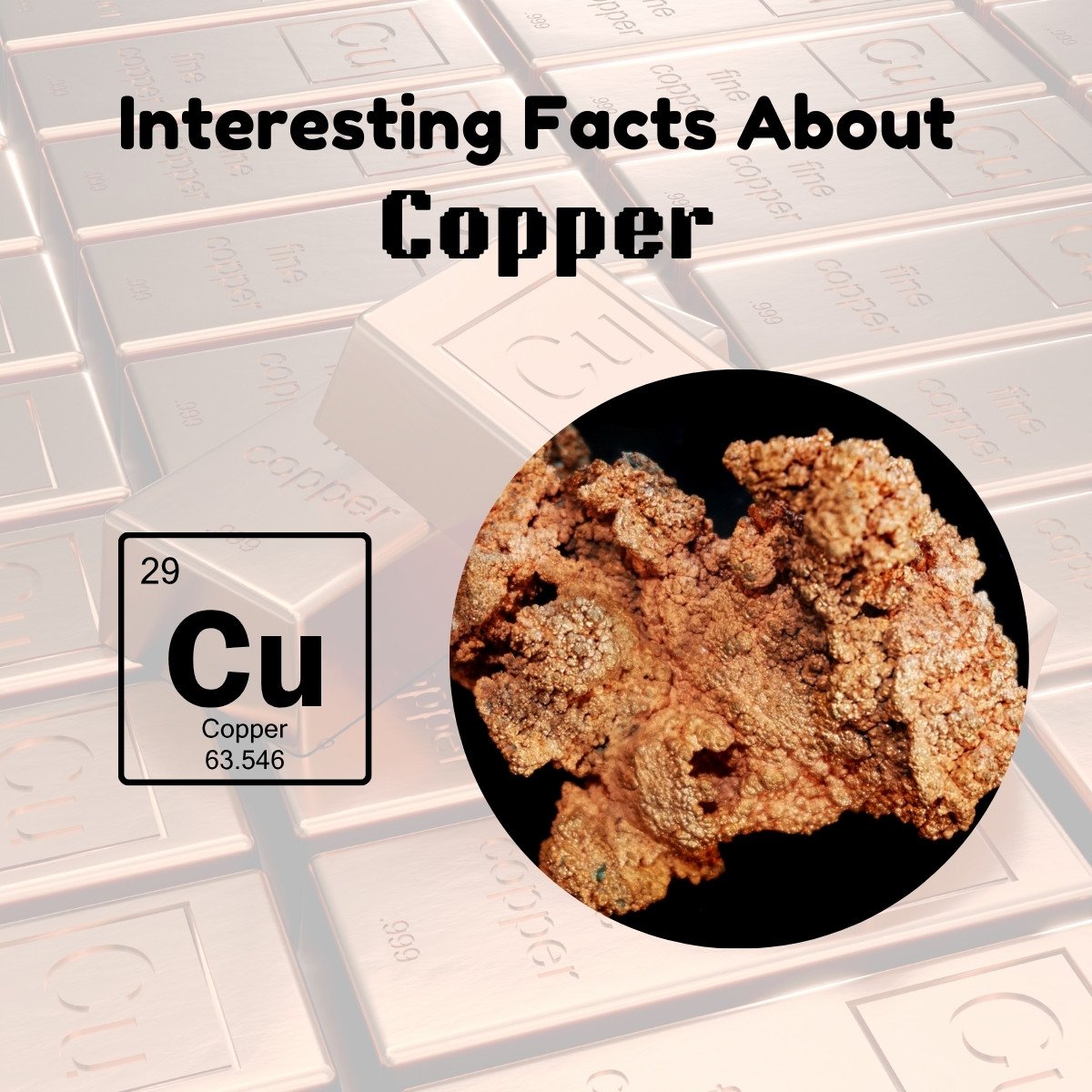Interesting Facts About Copper
Copper, with the symbol Cu and atomic number 29, is a chemical element. It is a soft, malleable, ductile metal with high thermal and electrical conductivity. Here are some interesting facts about copper.

Interesting Facts About Copper
Copper is one of the oldest metals used by humans: Copper is the oldest metal known to have been used by humans. The earliest known copper artifacts date back to around 8000 BC. A copper pendant discovered in what is now northern Iraq goes back to about 8700 B.C.
Copper is essential for Life: Copper is an essential trace mineral that plays a crucial role in many bodily functions. The adult body contains between 1.4 and 2.1 mg of copper per kilogram of body weight.
Copper is an excellent conductor of electricity and heat: Copper is an excellent conductor of both electricity and heat, second only to silver. This makes it an ideal material for electrical wiring, heat exchangers, and other applications that require efficient heat transfer. Copper wiring is used in the majority of electrical applications.
Copper can kill bacteria: Copper and copper alloys like brass and bronze have natural antimicrobial properties that can kill more than 99.9% of certain bacteria within 2 hours of exposure. This makes copper useful for applications like door handles, faucets, and other high-touch surfaces to help prevent the spread of infections
What makes copper an essential element in electrical wiring
- Copper is an essential element in electrical wiring for several key reasons:
- High Electrical Conductivity – Copper has the second highest electrical conductivity of all metals, after silver. This allows it to efficiently transmit electrical current with minimal resistance.
- Corrosion Resistance – Copper is resistant to corrosion, allowing copper wiring to maintain its conductivity and integrity over long periods of use.
- Ductility – Copper is a ductile metal, meaning it can be easily bent and shaped into the thin wires needed for electrical applications without breaking.
- Thermal Conductivity – Copper has high thermal conductivity, allowing it to efficiently dissipate heat generated in electrical circuits and reducing fire risks.
- Affordability – Copper is relatively inexpensive compared to other highly conductive metals like silver, making it a cost-effective choice for widespread electrical wiring applications.
- These properties make copper an ideal material for manufacturing electrical wiring that is safe, efficient, and cost-effective.

